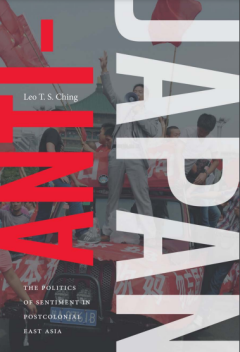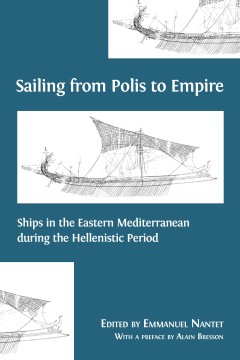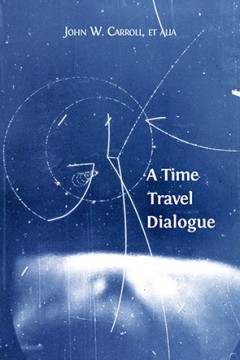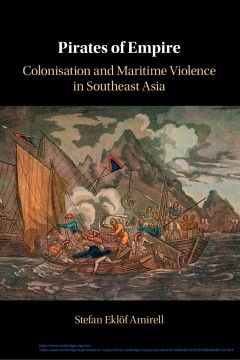Filter by

The environmental rule of law for oceans: designing legal solutions
Our oceans need a strong and effective environmental rule of law to protect them against increased pressures and demands, including climate change, pollution, fisheries, shipping and more. The environmental rule of law for oceans requires the existence of a set of rules and policies at multiple governance levels that appropriately regulate human activities at sea and ensure that pressures on th…
- Edition
- -
- ISBN/ISSN
- 9781009253741
- Collation
- xxxiii, 380 pages; illustration
- Series Title
- -
- Call Number
- 341.4 POZ t

Overwhelmed by overflows? : How people and organizations create and manage ex…
This transdisciplinary volume investigates the ways in which people and organisations deal with the overflow of information, goods or choices. It explores two main themes: the emergence of overflows and the management of overflows, in the sense of either controlling or coping with them. Individual chapters show the management of overflows taking place in various social settings, periods and pol…
- Edition
- -
- ISBN/ISSN
- 9789198469813
- Collation
- xi, 212p : ill.
- Series Title
- -
- Call Number
- 658.403 CZA o

The prehistoric maritime frontier of Southeast China : indigenous Bai Yue and…
- Edition
- -
- ISBN/ISSN
- 9789811640797
- Collation
- xxiii, 264 pg; ill.
- Series Title
- -
- Call Number
- 931.01 THE
- Edition
- -
- ISBN/ISSN
- 9789811640797
- Collation
- xxiii, 264 pg; ill.
- Series Title
- -
- Call Number
- 931.01 THE

Anti-Japan
In August 2017, four Chinese men dressed in Second World War Japanese military uniforms posed at the Continental Bank Warehouse in Shanghai where Chinese troops fought the Japanese imperial army in 1937. In February 2018, two different men, also in Japanese military garb, struck various poses in front of a memorial site on Zijin Mountain in Nanjing where Chinese civilians were murdered by th…
- Edition
- -
- ISBN/ISSN
- 9781478001881
- Collation
- 176p
- Series Title
- -
- Call Number
- 303.4825052 CHI a

Media Infrastructures And The Politics of Digital Time; Essays on Hardwired T…
Digital media everyday inscribe new patterns of time, promising instant communication, synchronous collaboration, intricate time management, and profound new advantages in speed. The essays in this volume reconsider these outward interfaces of convenience by calling attention to their supporting infrastructures, the networks of digital time that exert pressures of conformity and standardization…
- Edition
- -
- ISBN/ISSN
- 9789048550753
- Collation
- -
- Series Title
- -
- Call Number
- -

Time For The Ancients; Measurement, Theory, Experience
The book offers an overview of experiences, theories and conceptions of time in the Graeco-Roman world. It presents the results of new research on neglected medical texts, relating to time management, aging and times of life, and the importance of the accurate time assessment. At the same time it draws together the most important findings of much recent classical scholarship on ancient attitude…
- Edition
- -
- ISBN/ISSN
- 9783110752397
- Collation
- -
- Series Title
- -
- Call Number
- -

Time And Soul
In Book IV of his Physics, Aristotle asked whether time could exist without a soul that counts it. As a result, philosophers throughout antiquity tackled the problem of subjective time and its relation to the physical time of the cosmos. The present book gives an account of this debate. It analyses the contributions made by Aristotle and his Peripatetic followers but also discusses Neoplatonist…
- Edition
- -
- ISBN/ISSN
- 9783110692723
- Collation
- -
- Series Title
- -
- Call Number
- -

Sailing from polis to empire : ships in the Eastern Mediterranean during Hell…
This book represents a significant contribution to the fields of Hellenistic archaeology, Hellenistic economy, naval architecture and shipping in the eastern Mediterranean. It asks (and answers) questions that are often simply assumed and not systematically investigated. — Dr. Conor Trainor, University of Warwick What can the architecture of ancient ships tell us about their capacity to c…
- Edition
- -
- ISBN/ISSN
- 9781783746958
- Collation
- xvii, 127 p. ; ill.
- Series Title
- -
- Call Number
- 623.821 NAN s

A time travel dialogue
Is time travel just a confusing plot device deployed by science fiction authors and Hollywood filmmakers to amaze and amuse? Or might empirical data prompt a scientific hypothesis of time travel? Structured on a fascinating dialogue involving a distinguished physicist, Dr. Rufus, a physics graduate student and a computer scientist this book probes an experimentally supported hypothesis of backw…
- Edition
- -
- ISBN/ISSN
- 9781783740413
- Collation
- vii. :79 p.
- Series Title
- -
- Call Number
- 530.11 JOH a

Pirates of empire : colonisation and maritime violence in Southeast Asia
The suppression of piracy and other forms of maritime violence was a keystone in the colonisation of Southeast Asia. Focusing on what was seen in the nineteenth century as the three most pirate-infested areas in the region - the Sulu Sea, the Strait of Malacca and Indochina - this comparative study in colonial history explores how piracy was defined, contested and used to resist or justify colo…
- Edition
- -
- ISBN/ISSN
- 9781108594516
- Collation
- ix, 266p. : ill.
- Series Title
- -
- Call Number
- 364.164 AMI p
 Computer Science, Information & General Works
Computer Science, Information & General Works  Philosophy & Psychology
Philosophy & Psychology  Religion
Religion  Social Sciences
Social Sciences  Language
Language  Pure Science
Pure Science  Applied Sciences
Applied Sciences  Art & Recreation
Art & Recreation  Literature
Literature  History & Geography
History & Geography